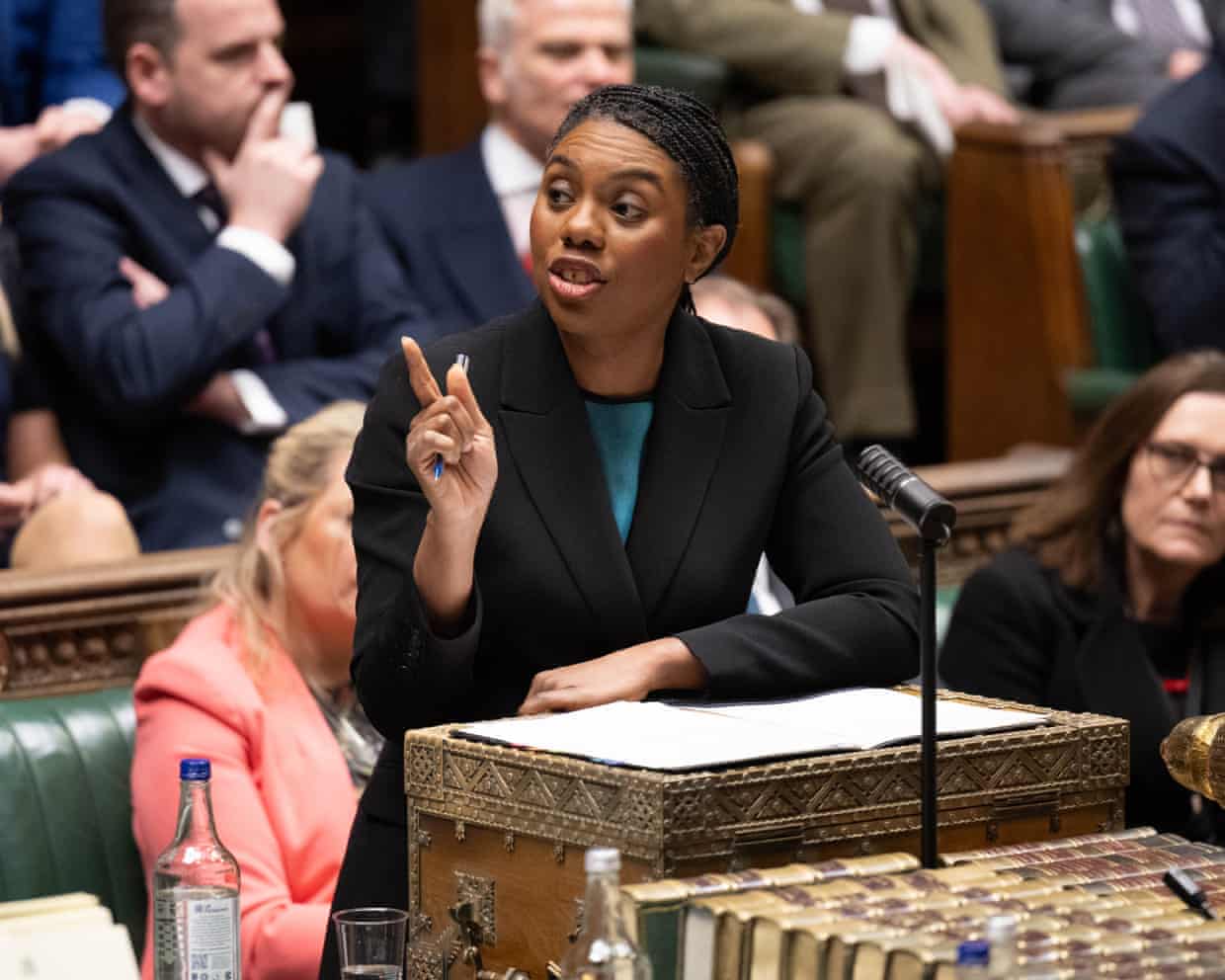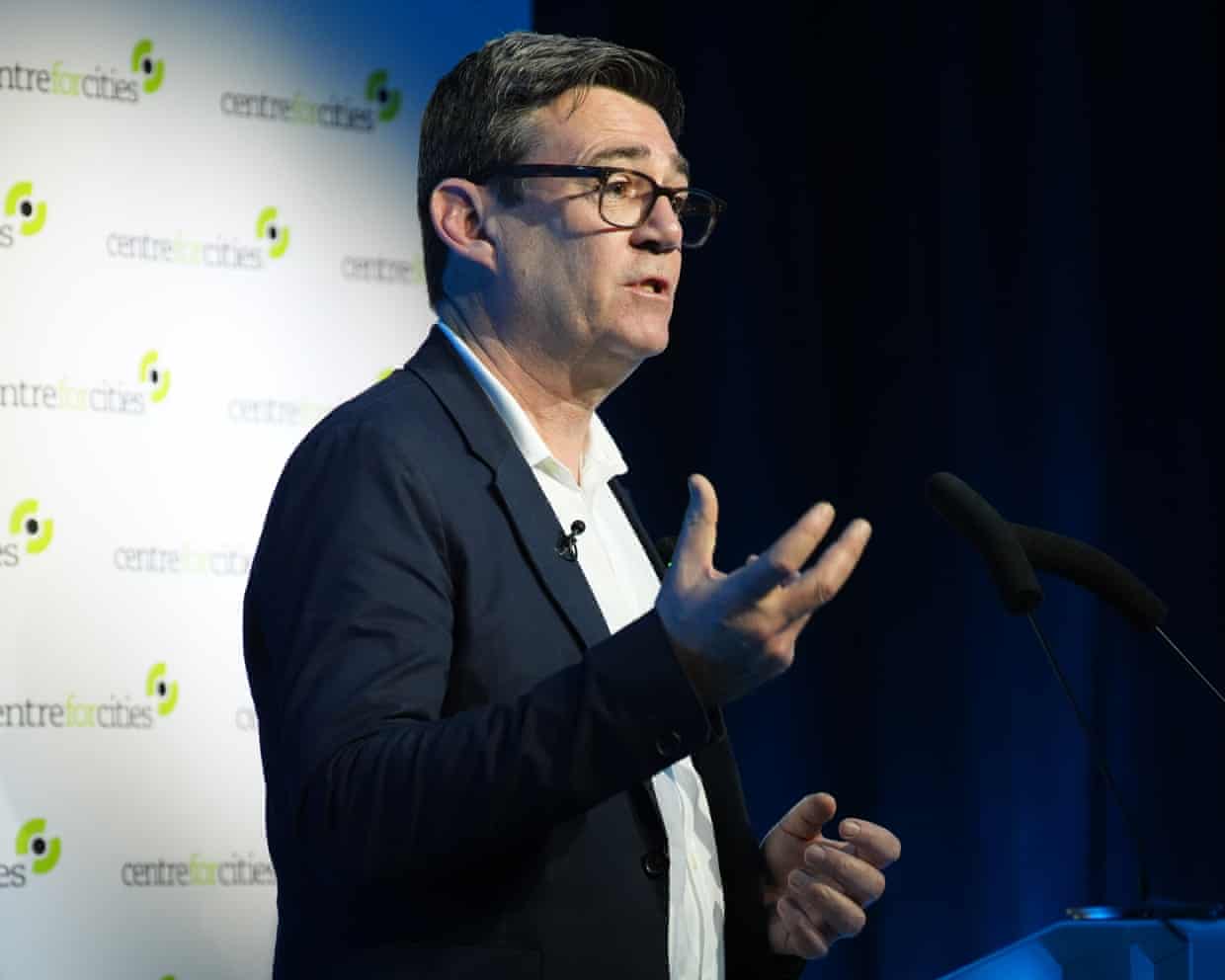
Asylum seekers waiting over a year for claim in UK may be allowed to work under new measures
Up to 21,000 asylum seekers who have waited for a year for their claims to be processed could be allowed to enter the jobs market so they can support themselves, the Home Office has said, as part of a package of measures to be announced on Thursday.As the government seeks to empty asylum hotels, claimants who break the law, work illegally or are found to have enough assets to live without support will from June be ejected and lose their support payments.The developments have been questioned by the Refugee Council for risking an increase in rough sleeping among those escaping war and famine.They come as Shabana Mahmood has hit back in a column for the Guardian at demands from senior labour movement figures for ministers to stop focusing on migration and to soften their attacks on the Green party.The home secretary wrote: “Restoring order at our border is not just an embodiment of Labour values, it is the necessary condition for a Labour government to do anything at all

Badenoch gives a borderline disgraceful performance at PMQs on Iran | John Crace
On another day it might even have been quite funny. The mismatch between Kemi Badenoch’s self-belief and her performance. But Wednesday’s prime minister’s questions was far too serious for that, with Donald Trump’s Awfully Big Iranian Adventure threatening to escalate into all-out war in the Middle East.It was also a day when you could think the unthinkable. Might Kemi actually be even weaker than Chris Philp? Certainly she’s the worst leader of the Tory party in living memory

‘He’s no Winston Churchill’: why Starmer can shrug off Trump’s insults over Iran
It was perhaps the most attention-grabbing moment of prime minister’s questions. Responding to yet another Conservative salvo about his approach to Iran and how it might affect ties with America, Keir Starmer was direct.“American planes are operating out of British bases – that is the special relationship in action,” he said. “Sharing intelligence every day to keep our people safe – that is the special relationship in action. Hanging on to President Trump’s latest words is not the special relationship in action

Andy Burnham criticises ‘bankruptcy’ of Labour approach to campaigning
Andy Burnham has reignited hostilities with Keir Starmer’s Labour leadership, criticising what he described as the “bankruptcy” of the party’s approach to campaigning, a week after it lost the previously safe seat of Gorton and Denton.The mayor of Greater Manchester and former MP, regarded as a rival to Starmer, said Labour’s campaigning style prevented it from connecting with non-Labour voters and other progressive parties, as he evoked the system of clipboard-wielding canvassers going door to door with records of previous Labour supporters.“What I want to say today is that the time has most definitely come for a serious conversation about our political system and its pervading culture, particularly so in the aftermath of the Gorton and Denton byelection,” Burnham said in a speech at the British Library in London that reignited speculation he has not given up on replacing Starmer.“It revealed the full depth of the chasm between people and Westminster politics. I don’t think anybody can seriously dispute that statement

Labour MP says she had no reason to suspect her husband may have broken law after his arrest on suspicion of spying for China – as it happened
One of the three men arrested on suspicion of spying for China is David Taylor, the husband of a Labour MP.Joani Reid, MP for East Kilbride and Strathaven, told Sky News in a statement:double quotation markI have never seen anything to make me suspect my husband has broken any law.I am not part of my husband’s business activities, and neither I nor my children are part of this investigation, and we should not be treated by media organisations as though we are.Above all I expect media organisations to respect my children’s privacy.That’s all from me, Tom Ambrose, and indeed the UK politics live blog for today

Ex-Nato commander defends Starmer after Trump’s ‘no Winston Churchill’ jibe
Britain cannot become embroiled in a war “without a clear end point”, a former senior Nato commander has said, as he defended Keir Starmer after Donald Trump’s jibes that he was “not Winston Churchill”.Trump was “another American president who had launched a war of choice,” said Gen Sir Richard Shirreff, as a minister insisted that the UK prime minister had acted “with a cool head” by not allowing British bases to be used for initial strikes.The US president launched a deeply personal attack on Starmer over his refusal to let Washington launch initial strikes on Iran from British bases, telling reporters on Tuesday in the White House: “This is not Winston Churchill that we’re dealing with.”In his latest extraordinary salvo, Trump said he was not happy with the UK even though Starmer eventually agreed the US could use the Diego Garcia military base in the Chagos Islands for strikes on Iranian missile facilities.Asked in a series of interviews on Wednesday morning about Trump’s comments, the chief secretary to the Treasury, James Murray, said: “The prime minister took the decision he did in the national interest

It’s crunch time! Gala apples and nashi pears among Australia’s best-value fruit and veg for March

How to turn limp rhubarb into tasty jam – recipe

£25 for a cookie? What the baffling luxury bakery boom tells us about Britain

Stuffed peppers and aubergine dip: Sami Tamimi’s recipes for savoury Palestinian snacks

Australian supermarket muesli bars taste test: the worst is ‘both dry and moist’

Why do my potatoes go black after cooking? | Kitchen aide